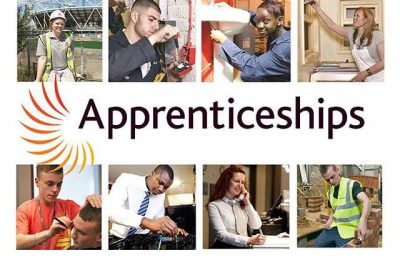Post-16 Options: T-Levels
26th August 2022
By now you will probably have heard mention of T-Levels, but what are they and how are they different?
What are they?
T-Levels are Level 3 technical qualifications related to specific industry sectors, taught over 2 years and equivalent to 3 A Levels.
They offer students a mix of academic and technical learning (including a minimum of 45 days work experience). They provide the knowledge and skills to progress into related work or related Higher Education courses. They are an approved, industry-focused alternative to A-level study.
How are T-Levels different to other Level 3 technical courses (e.g., BTEC Level 3, Cambridge National Level 3, CACHE Level 3)?
There is a compulsory requirement of a minimum of 45 days of work experience.
They are more academic and, overall, there are more exams compared to the other Level 3 qualifications listed in the question above. Historically, technical courses were mainly assessed by coursework- on a T-level there will still be coursework but there will also be exams.
As a result of the increased academic content, the GCSE grade requirements will likely be a little higher than the previous Level 3 qualifications (e.g., mainly ‘5s and above’ rather than ‘4s and above’) and on some T-levels you might need a grade 6 in a specific subject (e.g., a 6 in maths for an engineering related T-level).
Will T-Levels replace all of the other, existing Level 3 technical courses?
T-levels will eventually replace all other Level 3 technical courses which cover the same work sector/industry. Where there is not a T-level for a specific work sector then the previous Level 3 qualifications will likely remain, or new Level 3 courses may emerge.
This will certainly be the case for Level 3 technical qualifications that are the equivalent of 3 A-levels (e.g., Extended Diplomas). However, awarding bodies such as BTEC, Cambridge and CACHE also offer smaller qualifications at Level 3, equivalent to one or two A-levels. It is likely that these ‘smaller’ Level 3 technical qualifications will remain and will still be able to be studied alongside A-levels at sixth forms across England.
However, we will have to wait and see how all of this develops when all the new T-levels are introduced from September 2024.
Will I still be able to get to University if I take a Level 3 BTEC, Cambridge National or CACHE before T-Levels are fully introduced?
Yes! These qualifications are already accepted by the vast majority of Universities. Whilst they are available to study, students will continue to get into Uni with the older Level 3 courses including BTECs, Cambridge Nationals, CACHEs.
What can I do a T-Level in?
T-Levels you can do now (availability depends on where you live):
Accounting
Agriculture, Land Management and Production
Building Services Engineering for Construction
Design and Development for Engineering and Manufacturing
Design, Surveying and Planning for Construction
Digital Business Services
Digital Production, Design and Development
Digital Support Services
Education and Childcare
Engineering, Manufacturing, Processing and Control
Finance
Health
Healthcare Science
Legal Services
Maintenance, Installation and Repair for Engineering and Manufacturing
Management and Administration
Onsite Construction
Science
T-Levels coming September 2024 onwards:
Animal Care and Management
Catering
Craft and Design
Hairdressing, Barbering and Beauty Therapy
Media, Broadcast and Production
Where can I find out more about each subject?
The government has created a T-Levels website that tells you about the qualification, more information about each subject and where you can currently study a T-Level.
Search by postcode for currently available T-Levels and those available from September 2024.




